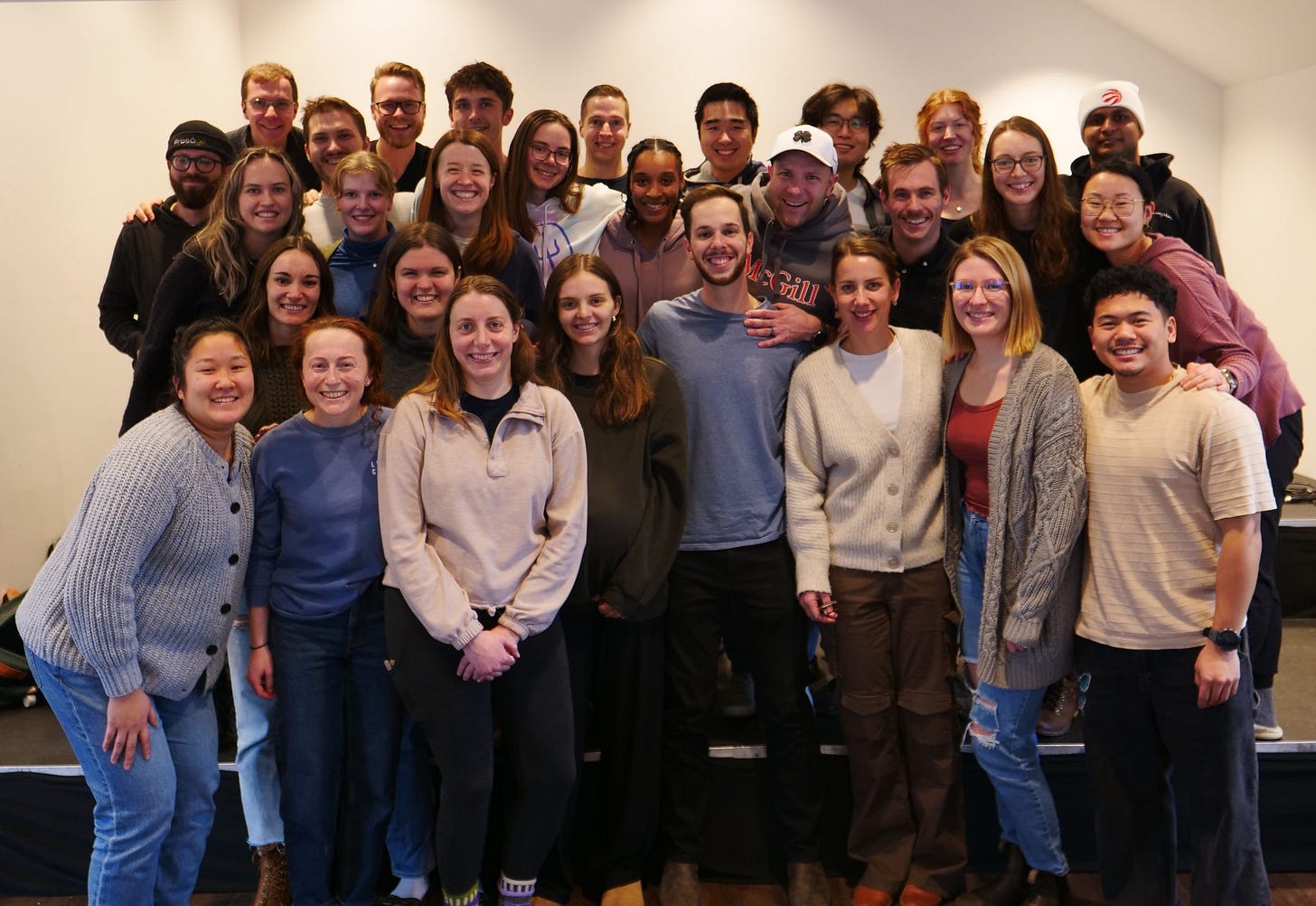Workable Co-vocational Careers
What kinds of careers are ideal for co-vocational leaders and how do we decide what to do?
When I speak about co-vocational leadership, what kinds of professions accompany the co-vocational side of things? For me, it’s been software development, but our team is beautifully diverse. This past weekend, we gathered most of our key leaders for a day of encouragement, prayer, and discernment for our collective future.
It is remarkable how diverse this team is and how their professions enrich our mission. Here are some examples from this team:
Massage Therapist
Fundraiser
Nurse
Osteopath
Veterinary Technician
Speech-Language Pathologist
Software Executive
PhD in Biochemistry
Actuary
PhD in Neuroscience
PhD in Geology
HR Professional
Software Engineer
Videographer
Psychotherapist
University Administrator
X-Ray Technician
Chemical Engineer
Software Sales Representative
Midwife
Family Doctor
Bus Driver/Security Guard
(Many more leaders enable what we do, but this team represents the leadership within each city.)
It should be clear from the above list that just about any job is compatible with a life of mission—if the job and the person are set up for success. But that’s often easier said than done.
Discernment in Co-Vocational Careers
While there’s significant flexibility in the types of careers suited for co-vocational disciple-making, some jobs are undeniably more challenging than others. To discern whether a job aligns with this calling, here are a few key questions to consider:
Is the job financially stable enough to support my family and community?
Does the job offer built-in flexibility that allows me to invest time in making disciples?
Does the job require excessive overtime or frequent travel that could hinder my availability?
Does the job demand a daily commute, pulling me away from my community?
Does the work environment place pressure on my values or challenge my integrity?
Could this job become an idol, making it difficult to let go if the Lord calls me elsewhere?
Could I work this job at a reduced capacity to create more space for making disciples or serving my community?
Some of these questions hold more weight than others. While you don’t need a perfect score to check the “co-vocationally approved” box, they help evaluate how well a career choice aligns with the purpose and reality of co-vocational discipleship.
Living Simply for the Kingdom
Our internal member's covenant has a line that attempts to capture the heart of this:
“We live simply and open-handedly. For example, we buy cheaper cars, we give up promotions or job opportunities, we sell houses, we shop frugally, we steward our finances well, we live debt-free, and we live radically sacrificial and generous lives—all for the sake of the lost.”
Are promotions, cars, and houses bad things? Of course not! These are simply examples of the kinds of choices co-vocational leaders make to serve others.
Interestingly, despite the focus on disciple-making in our community, the above leaders are thriving in their careers. The skills required to be effective in co-vocational ministry—time management, conflict resolution, communication, planning, etc.—are all highly valuable in a professional context.
A Framework for Sustainable Co-Vocational Ministry
To live a fruitful co-vocational life long-term, we need a framework and community that values something other than material success and upward mobility. Promotions, jobs, houses, and careers often detract from disciple-making capacity. When that happens, we choose the Kingdom of Jesus first.
For these reasons, sustainable and fruitful co-vocational ministry relies on an individual’s sense of call and intentional decision-making about their lifestyle, priorities, and time. None of our leaders arrived in our community ready to grapple with these questions. And we all still face daily pressure to fall into the patterns of our culture and pursue success and material gain for their own sake.
It has taken a lot of slow, patient discipleship work and refining from the Holy Spirit to help us see our lives and careers through a Kingdom-first mentality. And that work is ongoing. Each of us has walked a unique road of wrestling with pursuing careers we are gifted in, enjoy, or find practical, while also embracing our call to lead our discipleship movement.
Interested in more on this: I would check out Living Sent Part 2: Discovering Disciple-Making, where we unpack how to live an intentional and missional life.



